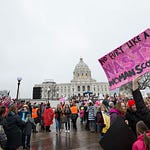R.T. Rybak—three-term Minneapolis mayor and now CEO of the Minneapolis Foundation—reflects on public life that spans journalism, philanthropy, and city leadership. He recalls the surreal 2001 primary night amid national crisis, then pivots to his current focus: using the Foundation as a lasting civic infrastructure. Through revived “Minnesota Meeting” convenings and partnerships like the Westminster Town Hall Forum, he’s foregrounding a core question for democracy: where Minnesotans get information, how they judge truth, and how independent creators can sustain themselves.
Rybak sees today’s media moment as both liberating and risky. Unlike the Vietnam-era monoculture that enabled groupthink, a wider array of voices now checks power—but also multiplies agendas and misinformation. He champions a mixed “media diet”: MPR and the Star Tribune, hyperlocal outlets like Southwest Voices, national magazines (The New Yorker, The Atlantic, Monocle), and historians/commentators he finds substantive. Social platforms are now more uneven—he’s drifted from Twitter/X and leans on Facebook and some LinkedIn—yet his larger point is literacies over loyalties: know a source’s perspective, then verify.
Equity remains his through-line. Rybak locates his motivation in early exposure to a “continuum of privilege,” which shapes his priorities around education, career pathways for kids of color, and economic mobility. He highlights “GroundBreak” efforts to boost Black homeownership and entrepreneurship, and argues Minneapolis’ shared spaces—lakes, parks, schools—create “common ground” that counters caricature and builds social fluency. The more we live and learn alongside people unlike ourselves, he says, the more resilient our civic fabric becomes.
On safety, Rybak condemns inaction on guns and calls assault-style weapons “tools of slaughter,” not hunting. Yet he insists policing alone can’t solve violence. He points to Minneapolis’ Youth Violence Prevention Initiative—trusted adults for every young person, early intervention on curfew/truancy, meaningful second chances, and a push to change the culture of violence—as a multi-sector model that lowered youth crime. He urges tighter city–county–philanthropy alignment and person-centered service delivery (e.g., Project Homeless Connect) to reduce duplication and close gaps that leave people behind—especially when media coverage often overlooks consequential county work.
Looking to the election, Rybak sidesteps endorsements but argues voters should reward coalition-builders, not combatants fueled by polarizing independent expenditures. He praises the current police chief’s balance of enforcement and community focus and sees promise in a broader Department of Public Safety—if it truly integrates upstream solutions. He urges Minneapolis to move beyond the post-George Floyd “cartoons” (like simplistic readings of “defund”) and to defend the city’s welcoming, pluralist identity. His closing advice is simple: calm down, find shared purpose, and elect leaders who prove that they can bring the city together.










